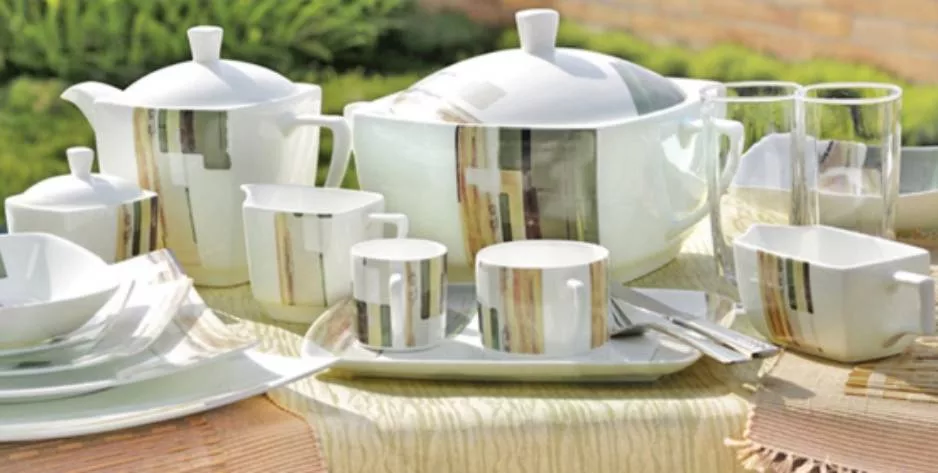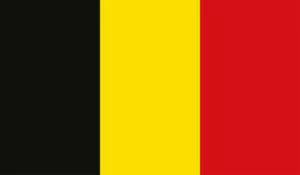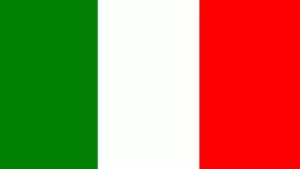Top 10 Importing Countries for Ceramic Products
Md. Joynal Abdin*
Business Consultant & Digital Marketer
Co-Founder & CEO of Bangladesh Trade Center
The international business of ceramic products encompasses the import and export of various ceramic goods, including tiles, sanitary ware, tableware, kitchenware, decorative items, and more. Here are some key aspects of the international business of ceramic products:
- Global Trade: Ceramic products are traded globally, with numerous countries involved in both import and export activities. Manufacturers and traders engage in international trade to meet diverse market demands and take advantage of cost differentials, specialized production capabilities, and consumer preferences.
- Production Centers: Several countries are known for their significant production of ceramic products. These production centers often benefit from favorable factors such as skilled labor, access to raw materials, advanced manufacturing techniques, and established industry clusters. Some prominent ceramic production hubs include China, Italy, Spain, Turkey, and Thailand.
- Exporting Countries: Countries with strong ceramic industries often have a robust export market for ceramic products. They cater to the global demand by shipping their products to various destinations. For example, China is a major exporter of ceramic products, supplying a wide range of ceramic goods to countries around the world.
- Importing Countries: Many countries import ceramic products to fulfill domestic demand, enhance their product offerings, or cater to specific market segments. As mentioned earlier, countries like the United States, Germany, the United Kingdom, France, and others are among the top importers of ceramic products.
- Trade Regulations and Tariffs: The international trade of ceramic products is subject to trade regulations and tariffs imposed by individual countries or regional trade agreements. Importers and exporters need to comply with these regulations, which can include product quality standards, safety requirements, labeling rules, and more.
- Market Trends: The international business of ceramic products is influenced by market trends and consumer preferences. For instance, there is a growing demand for eco-friendly and sustainable ceramic products, as well as innovative designs and digital printing technologies. Market trends can impact the choice of products, materials, and manufacturing processes.
- Distribution Channels: Efficient distribution channels play a crucial role in the international business of ceramic products. Importers and exporters establish partnerships with distributors, wholesalers, retailers, and online platforms to reach target markets effectively. These channels ensure that the products are available to consumers across different countries.
- International Trade Fairs: Trade fairs and exhibitions focused on ceramic products provide a platform for manufacturers, exporters, importers, and industry professionals to showcase their offerings, establish business contacts, and explore potential collaborations. Events like Cersaie in Italy and Cevisama in Spain are renowned international ceramic trade fairs.
Top 10 Importing Countries for Ceramic Products:
- United States: The United States is one of the largest importers of ceramic products, including tiles, tableware, and sanitary ware.
- Germany: Germany has a strong demand for ceramic products, particularly in the construction and interior design sectors.
- United Kingdom: The United Kingdom is a significant importer of ceramic products, including tiles, kitchenware, and decorative items.
- France: France imports a wide range of ceramic products, including pottery, porcelain, and ceramic tiles.
- Netherlands: The Netherlands is an important destination for ceramic imports due to its strong distribution networks and international trade connections.
- Belgium: Belgium is known for its thriving ceramic industry and imports a variety of ceramic products from different countries.
- Italy: Although Italy is renowned for its own ceramic industry, it also imports ceramic products to meet domestic demand and for diverse applications.
- Canada: Canada imports a significant amount of ceramic products, including tiles, bathroom fixtures, and decorative pottery.
- Spain: Spain has a strong demand for ceramic tiles, particularly for the construction and home improvement sectors, leading to substantial imports.
- Australia: Australia imports a wide range of ceramic products, including tableware, kitchenware, and bathroom fixtures.
United States
The United States is one of the largest importing countries for ceramic products. Here are some key points regarding the U.S. as an importer of ceramic products:
- Market Size: The United States has a significant market for ceramic products, including tiles, sanitary ware, tableware, kitchenware, decorative items, and more. The demand stems from various sectors such as construction, home improvement, hospitality, and consumer retail.
- Imports from Various Countries: The U.S. imports ceramic products from a wide range of countries around the world. Major exporting countries to the U.S. include China, Mexico, Italy, Spain, and several other European and Asian countries.
- Ceramic Tile Imports: The U.S. imports a substantial amount of ceramic tiles for various applications, including flooring, walls, and countertops. Ceramic tile imports cater to the construction and remodeling industries, as well as residential and commercial projects.
- Tableware and Kitchenware Imports: The U.S. also imports a significant quantity of ceramic tableware and kitchenware products. These include dishes, bowls, plates, mugs, cookware, and other ceramic kitchen utensils.
- Retail and Distribution Channels: Ceramic products imported into the U.S. are distributed through various retail channels, including home improvement stores, specialized ceramic retailers, department stores, and online platforms. These distribution channels make ceramic products easily accessible to consumers across the country.
- Trade Regulations and Tariffs: The import of ceramic products into the United States is subject to trade regulations and tariffs. Importers need to comply with standards set by regulatory bodies such as the U.S. Consumer Product Safety Commission (CPSC) and adhere to labeling requirements and safety standards.
- Market Trends and Preferences: The U.S. market for ceramic products is influenced by changing consumer preferences and market trends. Sustainable and eco-friendly ceramic products, as well as innovative designs and patterns, have gained popularity in recent years. Digital printing technology has also impacted the market by allowing for intricate designs and customization.
- Trade Shows: The U.S. hosts various trade shows and exhibitions focused on ceramic products, providing a platform for manufacturers, importers, and industry professionals to showcase their offerings and establish business connections. Examples include Coverings, the International Surface Event, and the Kitchen & Bath Industry Show (KBIS).
Germany
Germany is a significant importing country for ceramic products. Here are some key points regarding Germany as an importer of ceramic products:
- Market Demand: Germany has a strong demand for ceramic products, driven by various sectors such as construction, interior design, hospitality, and consumer retail. The German market appreciates high-quality ceramic goods for both functional and decorative purposes.
- Diverse Product Range: Germany imports a wide range of ceramic products, including tiles, sanitary ware, tableware, kitchenware, decorative items, and more. These products cater to different applications, from residential and commercial construction to household use and interior decoration.
- Imports from Multiple Countries: Germany sources ceramic products from various countries around the world. Major exporting countries to Germany include Italy, Spain, China, the Netherlands, and several other European and Asian countries known for their ceramic industries.
- Ceramic Tile Imports: Germany imports a significant volume of ceramic tiles for applications in residential and commercial construction projects. Ceramic tiles are used for flooring, walls, facades, and other surfaces, catering to the construction and interior design sectors.
- Sanitary Ware Imports: Germany also imports a considerable amount of ceramic sanitary ware, including bathroom fixtures such as toilets, sinks, and bathtubs. These products meet the demand for modern and stylish bathroom designs.
- Retail and Distribution Channels: Imported ceramic products in Germany are distributed through various retail channels, including home improvement stores, specialized ceramic retailers, department stores, and online platforms. The country has a well-established distribution network that ensures widespread availability of ceramic products.
- Trade Regulations and Standards: The import of ceramic products into Germany is subject to trade regulations, standards, and quality requirements. Imported ceramic goods must comply with German and European Union regulations regarding product safety, labeling, and environmental standards.
- Trade Fairs and Exhibitions: Germany hosts several trade fairs and exhibitions dedicated to ceramic products, providing a platform for manufacturers, importers, and industry professionals to showcase their offerings and establish business connections. Prominent events include Cersaie in Italy and Ambiente in Frankfurt.
United Kingdom
The United Kingdom is a significant importer of ceramic products. Here are some key points regarding the UK as an importer of ceramic products:
Market Demand: The United Kingdom has a strong demand for ceramic products, driven by various sectors such as construction, interior design, hospitality, and consumer retail. Ceramic products are popular for both residential and commercial applications.
Imports from Various Countries: The UK imports ceramic products from various countries around the world. Major exporting countries to the UK include Italy, Spain, China, the Netherlands, Germany, and other European and Asian countries known for their ceramic industries.
Ceramic Tile Imports: The UK imports a significant volume of ceramic tiles for applications in residential and commercial construction projects. Ceramic tiles are used for flooring, walls, kitchens, bathrooms, and other surfaces.
Sanitary Ware and Bathroom Fixtures Imports: The UK also imports a considerable amount of ceramic sanitary ware, including bathroom fixtures such as toilets, sinks, showers, and bathtubs. These products cater to the demand for modern and stylish bathroom designs.
Tableware and Kitchenware Imports: Ceramic tableware and kitchenware, including dishes, bowls, plates, mugs, and other kitchen utensils, are imported into the UK to meet consumer demand for high-quality and aesthetically pleasing products.
Retail and Distribution Channels: Imported ceramic products in the UK are distributed through various retail channels, including home improvement stores, specialized ceramic retailers, department stores, and online platforms. These distribution channels ensure wide availability of ceramic products to consumers across the country.
Trade Regulations and Standards: The import of ceramic products into the UK is subject to trade regulations, quality standards, and safety requirements. Imported ceramic goods must comply with relevant British and European Union regulations regarding product quality, labeling, and safety standards.
Trade Fairs and Exhibitions: The UK hosts trade fairs and exhibitions focused on ceramic products, providing a platform for manufacturers, importers, and industry professionals to showcase their offerings, establish business connections, and stay updated with the latest trends. Events like the British Ceramic Biennial and trade shows such as Decorex International are examples of such exhibitions.
France:
France is a notable importing country for ceramic products. Here are some key points regarding France as an importer of ceramic products:
- Market Demand: France has a strong market demand for ceramic products, with a focus on various sectors such as construction, interior design, hospitality, and consumer retail. Ceramic products are valued for their functionality, aesthetic appeal, and craftsmanship.
- Imports from Various Countries: France imports ceramic products from various countries worldwide. Major exporting countries to France include Italy, Spain, Portugal, China, Germany, and other European and Asian countries renowned for their ceramic industries.
- Ceramic Tile Imports: France imports a significant volume of ceramic tiles for applications in both residential and commercial construction projects. Ceramic tiles are used extensively for flooring, walls, bathrooms, kitchens, and outdoor areas.
- Tableware and Kitchenware Imports: France is known for its appreciation of fine cuisine and table setting, which drives the import of ceramic tableware and kitchenware. Imported ceramic products include dishes, plates, bowls, cups, and other culinary items.
- Decorative Ceramics: France imports decorative ceramics such as vases, figurines, sculptures, and artistic pieces for interior decoration purposes. These products cater to the demand for unique and aesthetically pleasing ceramic art.
- Retail and Distribution Channels: Imported ceramic products in France are distributed through various retail channels, including specialized ceramic retailers, home decor stores, department stores, and online platforms. France has a well-developed retail infrastructure to make ceramic products easily accessible to consumers.
- Trade Regulations and Standards: The import of ceramic products into France is subject to trade regulations, quality standards, and safety requirements. Imported ceramic goods must comply with French and European Union regulations regarding product quality, labeling, and safety standards.
- Trade Fairs and Exhibitions: France hosts trade fairs and exhibitions dedicated to ceramic products, providing a platform for manufacturers, importers, and industry professionals to showcase their offerings, network, and stay updated with the latest trends. Examples include Maison & Objet and the International Ceramics Exhibition in Vallauris.
Netherlands:
The Netherlands is a notable importing country for ceramic products. Here are some key points regarding the Netherlands as an importer of ceramic products:
- Market Demand: The Netherlands has a significant demand for ceramic products, driven by various sectors such as construction, interior design, hospitality, and consumer retail. Ceramic products are valued for their durability, versatility, and aesthetic appeal.
- Imports from Various Countries: The Netherlands imports ceramic products from various countries around the world. Major exporting countries to the Netherlands include Italy, Spain, China, Germany, Belgium, and other European and Asian countries with well-established ceramic industries.
- Ceramic Tile Imports: The Netherlands imports a substantial volume of ceramic tiles for applications in both residential and commercial construction projects. Ceramic tiles are used for flooring, walls, kitchens, bathrooms, and other surfaces.
- Sanitary Ware Imports: The Netherlands also imports a considerable amount of ceramic sanitary ware, including bathroom fixtures such as toilets, sinks, showers, and bathtubs. These products cater to the demand for modern and stylish bathroom designs.
- Decorative Ceramics: The Netherlands imports decorative ceramic items such as vases, pottery, figurines, and other artistic pieces. These products are sought after for interior decoration, home accessories, and gift items.
- Retail and Distribution Channels: Imported ceramic products in the Netherlands are distributed through various retail channels, including specialized ceramic retailers, home decor stores, department stores, and online platforms. The Netherlands has a well-developed retail infrastructure that ensures accessibility to ceramic products for consumers.
- Trade Regulations and Standards: The import of ceramic products into the Netherlands is subject to trade regulations, quality standards, and safety requirements. Imported ceramic goods must comply with Dutch and European Union regulations regarding product quality, labeling, and safety standards.
- Trade Fairs and Exhibitions: The Netherlands hosts trade fairs and exhibitions dedicated to ceramic products, providing a platform for manufacturers, importers, and industry professionals to showcase their offerings, establish business connections, and stay updated with the latest trends. Events like MaterialDistrict Rotterdam and the Dutch Design Week may feature ceramic products.
Belgium
Belgium is a significant importing country for ceramic products. Here are some key points regarding Belgium as an importer of ceramic products:
- Market Demand: Belgium has a strong market demand for ceramic products, driven by various sectors such as construction, interior design, hospitality, and consumer retail. Ceramic products are valued for their aesthetic appeal, durability, and versatility.
- Imports from Various Countries: Belgium imports ceramic products from various countries around the world. Major exporting countries to Belgium include Italy, Spain, the Netherlands, Germany, France, and other European and Asian countries with well-established ceramic industries.
- Ceramic Tile Imports: Belgium imports a substantial volume of ceramic tiles for applications in both residential and commercial construction projects. Ceramic tiles are used for flooring, walls, kitchens, bathrooms, and other surfaces.
- Sanitary Ware Imports: Belgium also imports a considerable amount of ceramic sanitary ware, including bathroom fixtures such as toilets, sinks, showers, and bathtubs. These products cater to the demand for modern and stylish bathroom designs.
- Tableware and Kitchenware Imports: Belgium imports ceramic tableware and kitchenware, including dishes, plates, bowls, cups, and other culinary items. These products cater to the demand for high-quality and aesthetically pleasing table settings and kitchen utensils.
- Decorative Ceramics: Belgium imports decorative ceramic items such as vases, pottery, figurines, and other artistic pieces. These products are sought after for interior decoration, home accessories, and gift items.
- Retail and Distribution Channels: Imported ceramic products in Belgium are distributed through various retail channels, including specialized ceramic retailers, home decor stores, department stores, and online platforms. Belgium has a well-developed retail infrastructure that ensures accessibility to ceramic products for consumers.
- Trade Regulations and Standards: The import of ceramic products into Belgium is subject to trade regulations, quality standards, and safety requirements. Imported ceramic goods must comply with Belgian and European Union regulations regarding product quality, labeling, and safety standards.
- Trade Fairs and Exhibitions: Belgium hosts trade fairs and exhibitions dedicated to ceramic products, providing a platform for manufacturers, importers, and industry professionals to showcase their offerings, establish business connections, and stay updated with the latest trends. Events like CERAMIC Event in Brussels and Maison & Objet Brussels may feature ceramic products.
Italy
Italy is renowned for its own ceramic industry, but it also imports ceramic products to meet domestic demand and for various purposes. Here are some key points regarding Italy as an importer of ceramic products:
- Market Demand: Italy has a significant market demand for ceramic products, driven by various sectors such as construction, interior design, hospitality, and consumer retail. Italian consumers appreciate high-quality ceramics with exquisite designs and craftsmanship.
- Imports from Various Countries: Italy imports ceramic products from various countries worldwide. While it is a major exporter of ceramic goods, there are instances where specialized or unique products are imported to cater to specific market needs.
- Ceramic Tile Imports: Italy imports ceramic tiles for different applications, including flooring, walls, facades, and decorative purposes. These imports complement the country’s domestic ceramic production and offer a broader range of options to consumers.
- Sanitary Ware Imports: Italy also imports ceramic sanitary ware, including bathroom fixtures such as toilets, sinks, showers, and bathtubs. These imports help diversify the product range available to consumers in the Italian market.
- Tableware and Kitchenware Imports: Italy imports ceramic tableware and kitchenware, including dishes, plates, bowls, cups, and other culinary items. These imports contribute to the variety of designs and styles available in the Italian market.
- Decorative Ceramics: Italy imports decorative ceramic items such as vases, pottery, figurines, and artistic pieces. These imports add to the diversity of decorative options for interior design and home decoration purposes.
- Retail and Distribution Channels: Imported ceramic products in Italy are distributed through various retail channels, including specialized ceramic retailers, home decor stores, department stores, and online platforms. Italy has a well-established retail infrastructure that ensures accessibility to a wide range of ceramic products.
- Trade Regulations and Standards: The import of ceramic products into Italy is subject to trade regulations, quality standards, and safety requirements. Imported ceramic goods must comply with Italian and European Union regulations regarding product quality, labeling, and safety standards.
- Trade Fairs and Exhibitions: Italy hosts numerous trade fairs and exhibitions dedicated to ceramic products, both for domestic and international markets. These events provide opportunities for manufacturers, importers, and industry professionals to showcase their offerings and establish business connections. Prominent examples include Cersaie in Bologna and Fuorisalone during Milan Design Week.
Canada
Canada is an important importing country for ceramic products. Here are some key points regarding Canada as an importer of ceramic products:
- Market Demand: Canada has a significant market demand for ceramic products, driven by various sectors such as construction, interior design, hospitality, and consumer retail. Ceramic products are used in residential and commercial projects, as well as for household use and decoration.
- Imports from Various Countries: Canada imports ceramic products from various countries around the world. Major exporting countries to Canada include China, Italy, Spain, the United States, Mexico, and other European and Asian countries with established ceramic industries.
- Ceramic Tile Imports: Canada imports a substantial volume of ceramic tiles for applications in residential and commercial construction projects. Ceramic tiles are used for flooring, walls, kitchens, bathrooms, and other surfaces.
- Sanitary Ware Imports: Canada also imports a significant amount of ceramic sanitary ware, including bathroom fixtures such as toilets, sinks, showers, and bathtubs. These products cater to the demand for modern and functional bathroom designs.
- Tableware and Kitchenware Imports: Ceramic tableware and kitchenware, including dishes, plates, bowls, cups, and other culinary items, are imported into Canada to meet consumer demand for high-quality and aesthetically pleasing products.
- Retail and Distribution Channels: Imported ceramic products in Canada are distributed through various retail channels, including home improvement stores, specialized ceramic retailers, department stores, and online platforms. Canada has a well-developed retail infrastructure that ensures accessibility to ceramic products for consumers across the country.
- Trade Regulations and Standards: The import of ceramic products into Canada is subject to trade regulations, quality standards, and safety requirements. Imported ceramic goods must comply with Canadian regulations regarding product quality, labeling, and safety standards.
- Trade Fairs and Exhibitions: Canada hosts trade fairs and exhibitions focused on ceramic products, providing a platform for manufacturers, importers, and industry professionals to showcase their offerings, establish business connections, and stay updated with the latest trends. Examples include the Interior Design Show (IDS) and the Construction Canada Show.
Spain
Spain is primarily known for its thriving ceramic industry and is a significant exporter of ceramic products. However, it may also import certain ceramic products to meet specific market demands. Here are some key points regarding Spain as a potential importer of ceramic products:
- Market Demand: Spain has a robust domestic demand for ceramic products, especially tiles and sanitary ware. However, there may be niche market segments or specialized products where Spain imports ceramics to fulfill specific requirements.
- Imports from Various Countries: Spain may import ceramic products from various countries based on specific needs or unique product offerings. These imports can come from countries known for their ceramic industries, such as Italy, China, Germany, Portugal, and the Netherlands.
- Specialized Ceramic Products: Spain might import specialized ceramic products that are not extensively produced domestically or require unique expertise. This could include certain types of artistic ceramics, unique designs, or specific technical ceramics for specialized applications.
- Retail and Distribution Channels: Imported ceramic products in Spain are distributed through various retail channels, including specialized ceramic retailers, home decor stores, construction supply outlets, and online platforms. These channels ensure accessibility to imported ceramic products for consumers across the country.
- Trade Regulations and Standards: The import of ceramic products into Spain is subject to trade regulations, quality standards, and safety requirements. Imported ceramic goods must comply with Spanish and European Union regulations regarding product quality, labeling, and safety standards.
- Trade Fairs and Exhibitions: Spain hosts renowned trade fairs and exhibitions focused on ceramic products, which primarily showcase the country’s own ceramic industry. However, these events may also feature international exhibitors and provide opportunities for networking and exploring potential imports.
It’s important to note that Spain’s ceramic industry is primarily export-oriented, and the country’s import dynamics may be limited in comparison. Nevertheless, for the most accurate and up-to-date information on Spain’s role as an importer of ceramic products, it is advisable to refer to current trade data, industry reports, and market analysis.
Australia:
Australia is a significant importing country for ceramic products. Here are some key points regarding Australia as an importer of ceramic products:
- Market Demand: Australia has a strong market demand for ceramic products, driven by various sectors such as construction, interior design, hospitality, and consumer retail. Ceramic products are used in residential and commercial projects, as well as for household use and decoration.
- Imports from Various Countries: Australia imports ceramic products from various countries worldwide. Major exporting countries to Australia include China, Italy, Spain, Malaysia, Thailand, and other countries known for their ceramic industries.
- Ceramic Tile Imports: Australia imports a significant volume of ceramic tiles for applications in residential and commercial construction projects. Ceramic tiles are used for flooring, walls, kitchens, bathrooms, and other surfaces.
- Sanitary Ware Imports: Australia also imports a considerable amount of ceramic sanitary ware, including bathroom fixtures such as toilets, sinks, showers, and bathtubs. These products cater to the demand for modern and functional bathroom designs.
- Tableware and Kitchenware Imports: Ceramic tableware and kitchenware, including dishes, plates, bowls, cups, and other culinary items, are imported into Australia to meet consumer demand for high-quality and aesthetically pleasing products.
- Retail and Distribution Channels: Imported ceramic products in Australia are distributed through various retail channels, including home improvement stores, specialized ceramic retailers, department stores, and online platforms. Australia has a well-developed retail infrastructure that ensures accessibility to ceramic products for consumers across the country.
- Trade Regulations and Standards: The import of ceramic products into Australia is subject to trade regulations, quality standards, and safety requirements. Imported ceramic goods must comply with Australian regulations regarding product quality, labeling, and safety standards.
- Trade Fairs and Exhibitions: Australia hosts trade fairs and exhibitions focused on ceramic products, providing a platform for manufacturers, importers, and industry professionals to showcase their offerings, establish business connections, and stay updated with the latest trends. Examples include the Australian Ceramics Triennale and the Decor + Design Exhibition.
Top 10 Importing Countries for Ceramic Products: Top 10 Importing Countries for Ceramic Products
*Author’s Short Profile:
Mr. Md. Joynal Abdin is a Business Consultant & Digital Marketer based in Dhaka, Bangladesh. He is also Co-Founder & CEO of Bangladesh Trade Center. Previously he served at Dhaka Chamber of Commerce & Industry (DCCI) as Executive Secretary; DCCI Business Institute (DBI) as Executive Director; SME Foundation as Deputy Manager; and the Federation of Bangladesh Chambers of Commerce & Industry (FBCCI) as Assistant Secretary.
The list of services Mr. Abdin is offering includes but not limited to Business Research and Documentations like Feasibility Study, Project Proposal Preparation, Writing Business Manual, Standard Operating Procedures etc.; Export Market Selection and Product Positioning at Home and Abroad; Buyers-Sellers Matchmaking; Website Development; Search Engine Optimization (SEO); and Social Media Marketing etc.















0 Comments